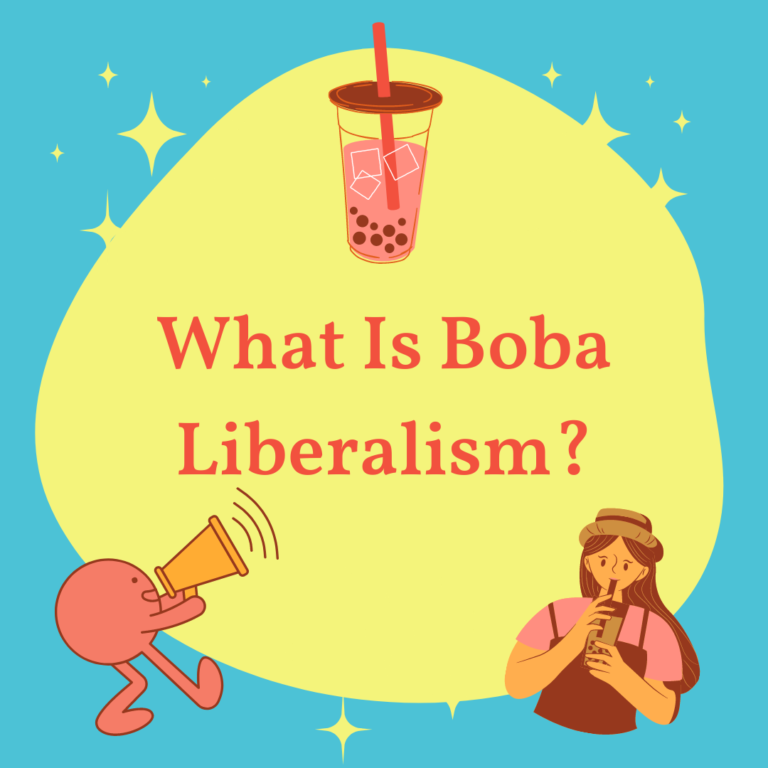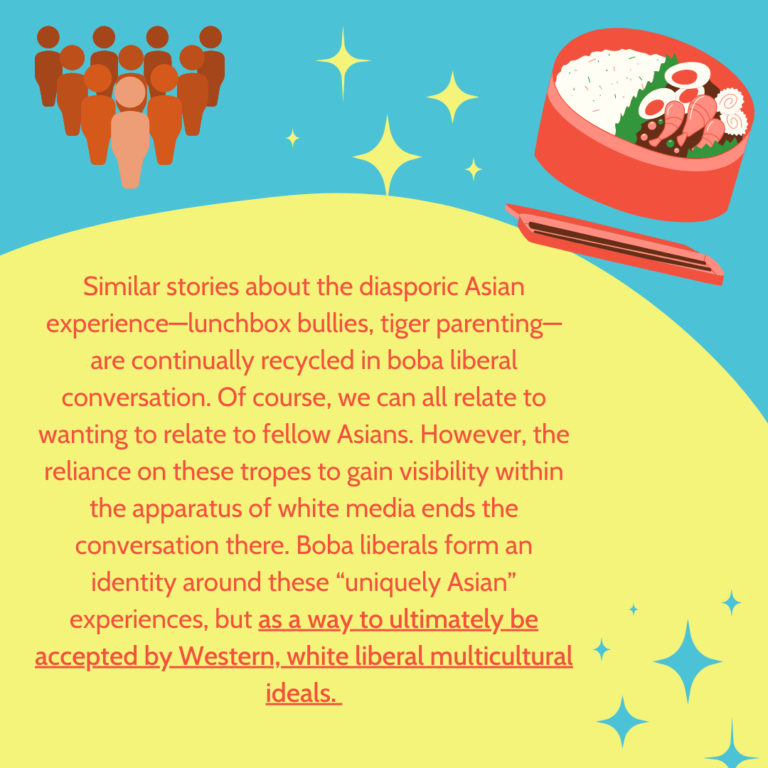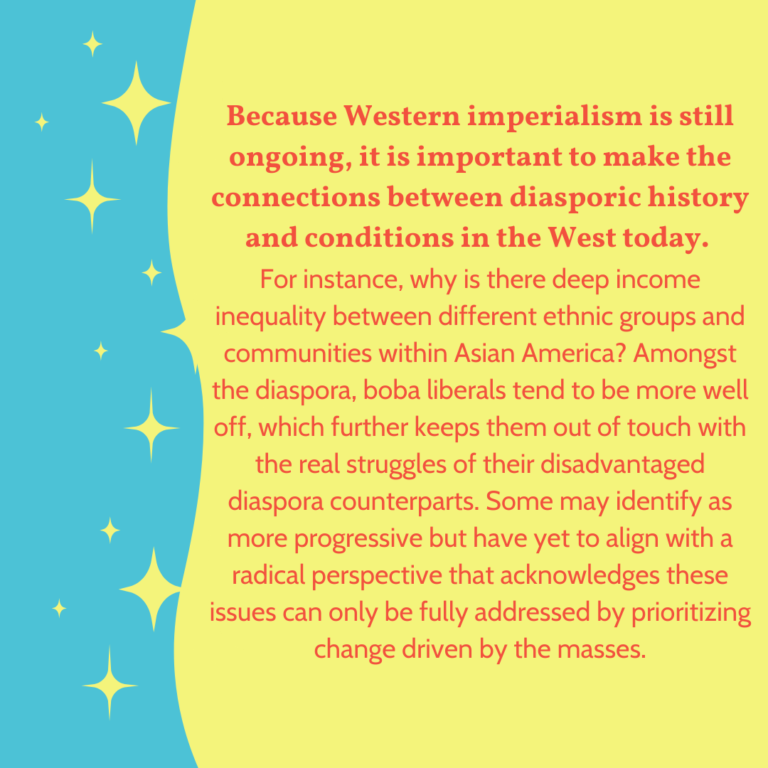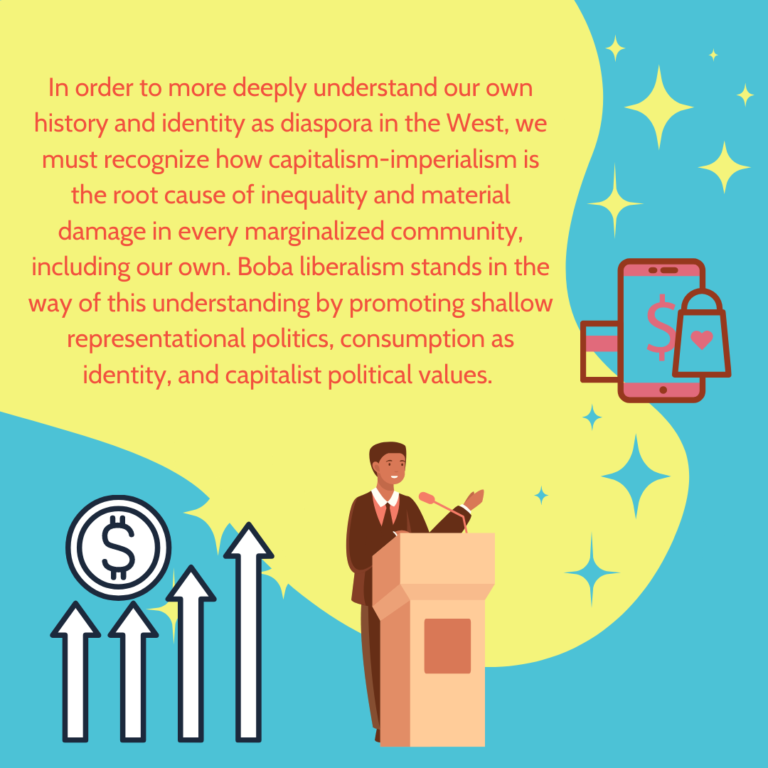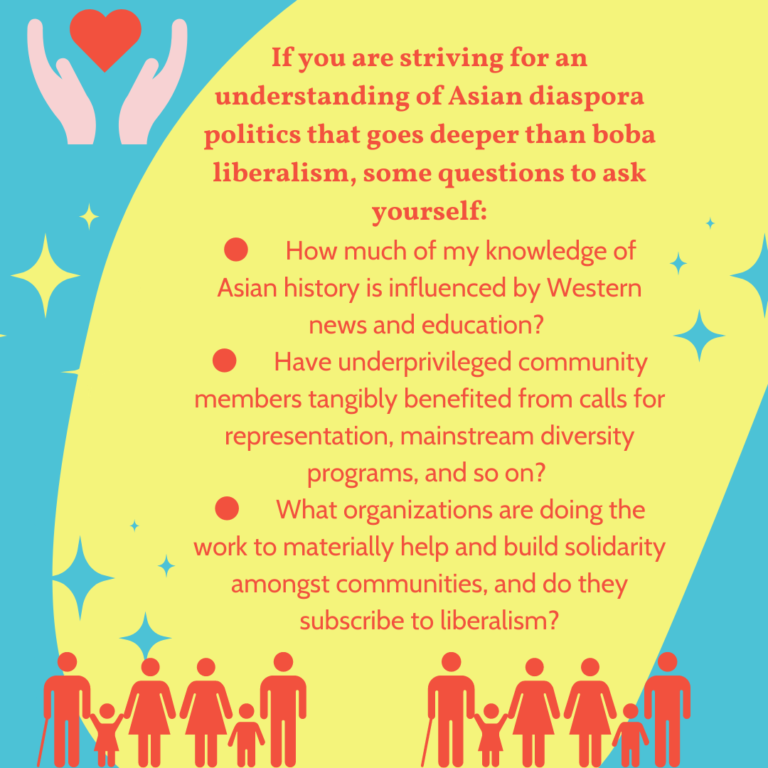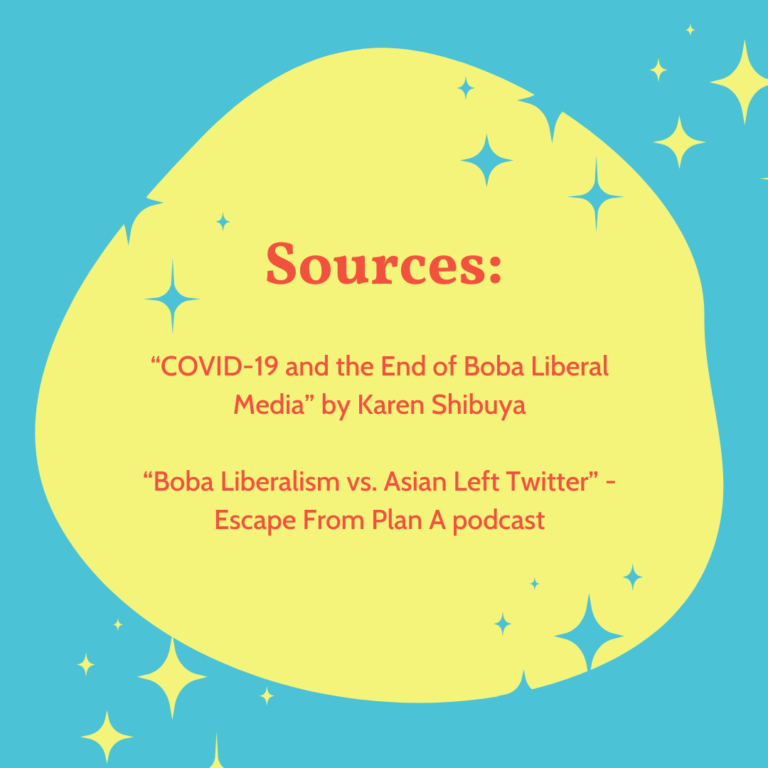Boba liberalism refers to mainstream Asian diasporic liberal politics. The term was originally coined by Twitter user @diaspora_red to describe diasporic Asians whose politics are centered around assimilation into the U.S., often focusing on cultural topics like mainstream media representation.
Why “boba”?
Like boba itself, boba liberalism is largely inoffensive, never challenging the capitalist political system of the West. These diasporic Asians recognize that social inequalities exist, but their activism is often consumerist in nature -many demonstrate their activism by buying merchandise, pushing for more Asian faces in Hollywood, or supporting corporate-sponsored diversity campaigns
The same old self-orientalizing anecdotes
Similar stories about the diasporic Asian experience—lunchbox bullies, tiger parenting are continually recycled in boba liberal conversation. Of course, we can all relate to wanting to relate to fellow Asians. However, the reliance on these tropes to gain visibility within the apparatus of white media ends the conversation there. Boba liberals form an identity around these “uniquely Asian” experiences, but as a way to ultimately be accepted by Western, white liberal multicultural ideals.
The underlying belief of boba liberals is the same as that of every other liberal and conservative: that the West embodies freedom, and that the prosperity of the American Dream is what an individual should strive to achieve. They recognize that their families may have struggled when immigrating to the West, but they are disconnected from the history of their homelands.
They do not see that the anti-colonial and anti-imperialist revolutionary struggles of their homelands, in the face of Western imperialist aggression in Asia and the Pacific, are what drove the diaspora here in the first place.
Looking beyond the boba biberal perspective
Because Western imperialism is still ongoing, it is important to make the connections between diasporic history and conditions in the West today.
For instance, why is there deep income inequality between different ethnic groups and communities within Asian America? Amongst the diaspora, boba liberals tend to be more well off, which further keeps them out of touch with the real struggles of their disadvantaged diaspora counterparts.
Some may identify as more progressive but have yet to align with a radical perspective that acknowledges these issues can only be fully addressed by prioritizing change driven by the masses.
Where do we go from here?
In order to more deeply understand our own history and identity as diaspora in the West, we must recognize how capitalism-imperialism is the root cause of inequality and material damage in every marginalized community, including our own. Boba liberalism stands in the way of this understanding by promoting shallow representational politics, consumption as identity, and capitalist political values.
If you are striving for an understanding of Asian diaspora politics that goes deeper than boba liberalism, some questions to ask yourself:
How much of my knowledge of Asian history is influenced by Western news and education?
Have underprivileged community members tangibly benefited from calls for representation, mainstream diversity programs, and so on?
What organizations are doing the work to materially help and build solidarity amongst communities, and do they subscribe to liberalism?
Sources
COVID-19 and the End of Boba Liberal Media by Karen Shibuya
Boba Liberalism vs. Asian Left Twitter (ft. Creighton and Redmond) – Escape From Plan A podcast

